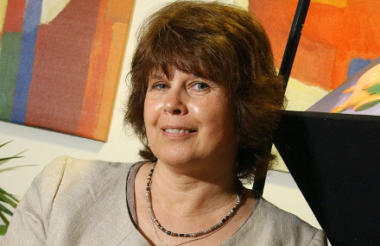The number of charity chief executives complaining about “interfering chairs” has risen sharply since the collapse of Kids Company, leading to new tensions at the heart of the charity sector, according to the chief executives' body Acevo.
Jenny Berry, director of leadership and development at the organisation, said a crisis line set up by the body to counsel chief executives has noted a steady shift in the nature of calls since events of last summer.
In particular, the body has noted an increase in calls reporting tensions caused by charity chairs overstepping their designated lines of duty. Berry puts the change down to media scrutiny of governance failings at Kids Company and the resulting push by the Charity Commission for chairs to improve their game.
“Media interest raised the issue about chairs and trustees being involved in the running of the charity. They have quite rightly got themselves involved but they have come in wanting to count the paperclips, rather than agreeing to a scheme of delegation,” Berry said in an interview for Governance & Leadership magazine.
Many of the calls have centred around issues like board members turning up at the office and talking directly to staff – or as one caller put it, “interfering with the day-to-day running of the organisation”, Berry said.
“In that board member’s point of view, they probably think that they are coming in and overseeing things and watching it carefully,” said Berry. “That might be fine but when the chief executive hasn’t agreed beforehand – or might be feeling sensitive about something – they can start to feel threatened.”
Blurred lines of responsibilities
Acevo chair and chief executive of Mind, Paul Farmer, said he has also noticed a shift for the worse in the relationship between chairs and chief executives being reported to Acevo.
“There’s no doubt that this is a really testing time for those relationships,” he says. “Certainly from Acevo’s perspective, there are definitely examples where some of those relationships are being put to the test.”
That strain, says Farmer, is heightened as a “direct consequence of what has happened over the last year” and the resulting increase in regulation from the Charity Commission, with worried chairs attempting to up their ante.
“The Commission has sent a very strong message that trustees have a fundamentally important role to play - which is very accurate and absolutely spot-on,” Farmer said.
“But that has led to boards and chairs feeling concerned that they don’t know enough about what the organisation is doing and sometimes as though they might need to take a greater degree of control.”
The result, he said, was a “risk that the areas of responsibility and the relationship between the chair and chief executive becomes a bit unclear”.
“The lines can become a bit blurred,” said Farmer. “And shifting that kind of focus can be a cause of tension for a chief executive who may be used to operating with more freedom.”
Eyes off the ball
Acevo operates two hotlines – one for chief executives in crisis who are at the point of fearing for their jobs – and another more general governance advice line.
According to Berry, chief executives are largely “still leaving it to the last minute” and opting to call the crisis line rather than making earlier calls for governance advice.
On average, she says, the crisis line receives about six new calls each week from chief executives, while the governance line receives approximately two new calls each week.
Often, according to Berry, by the time a charity leader calls the crisis line, there’s a danger that tensions are already frayed beyond repair – leading to a risky period of uncertainty for the charity and potentially costly recruitment process.
“The cost to a charity if the chief executive departs that role is enormous,” says Berry.
“There can be three months in the departure period, perhaps six months while they are in the recruitment period and then another three months before the new chief executive comes in and all the relationships are sorted out.
“It worries me that somebody’s eye is off the ball for that period.
“So the key is getting people to talk before things go wrong and doing some facilitation to put things right.”
Effective engagement
Berry recommends several ways for charity chairs to ensure effective governance without causing fractures within the charity – starting with “support”.
“I welcome board members wanting to get more engaged - it’s much better than only coming to the meeting every three months,” she says. “But there has got to be a balance between that and going in on a daily basis and running the show. It’s a balance of finding out how much support the chief executive needs and the chief executive being able to go to the chair and saying actually 'this isn’t working out, can I talk to you about it'.”
She also recommends that chairs and chief executives define the boundaries of their roles at an early stage to avoid potential conflicts, and address any problems early.









